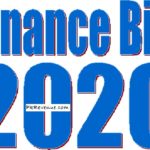KARACHI: Foreign investors have raised concerns over the proposed tax rates on import of raw materials.
Overseas Chamber of Commerce and Industry (OICCI), which is represented of foreign investors and multinational companies in Pakistan, highlighted anomalies in the Finance Bill 2020 and proposed rectifications.
The OICCI said that the reduction in rate of income tax u/s 148 to 2 percent on import of raw materials/items mentioned in Part II of the Twelfth Schedule is a significant relief that will improve the cash flow position of companies.
However, two concerns have been voiced on the changes proposed:
a) The Bill seeks to introduce a new Schedule as the Twelfth Schedule to the Ordinance wherein all the goods imported into Pakistan may be classified under either of the three categories viz Part I, Part II and Part III based on PCT code wise listing of goods.
However, certain core raw materials used by manufacturers are still falling under the category of 5.5 percent income tax by virtue of non-inclusion in Part II of Twelfth Schedule.
It is suggested that a general rate of 2 percent may be prescribed for all imports by manufacturing companies for own consumption.
b) The Bill now seeks to omit Clause 72B, therefore, exemption would no longer be available in respect of tax collected under Section 148 of the Ordinance to an industrial undertaking.
Though there is substantial reduction in rate of collection of tax, as a result of withdrawal of such exemption, nevertheless, the taxpayer operating on margins lower than the rate of advance tax collected on imports or having adjustable losses/tax credits or enjoying tax exemption may still face liquidity hitches.
In order to avoid cash flow issues and tax refundable situation, it is suggested that instead of omitting clause 72 B, industrial undertakings importing raw materials for in house consumption should be provided an option.



